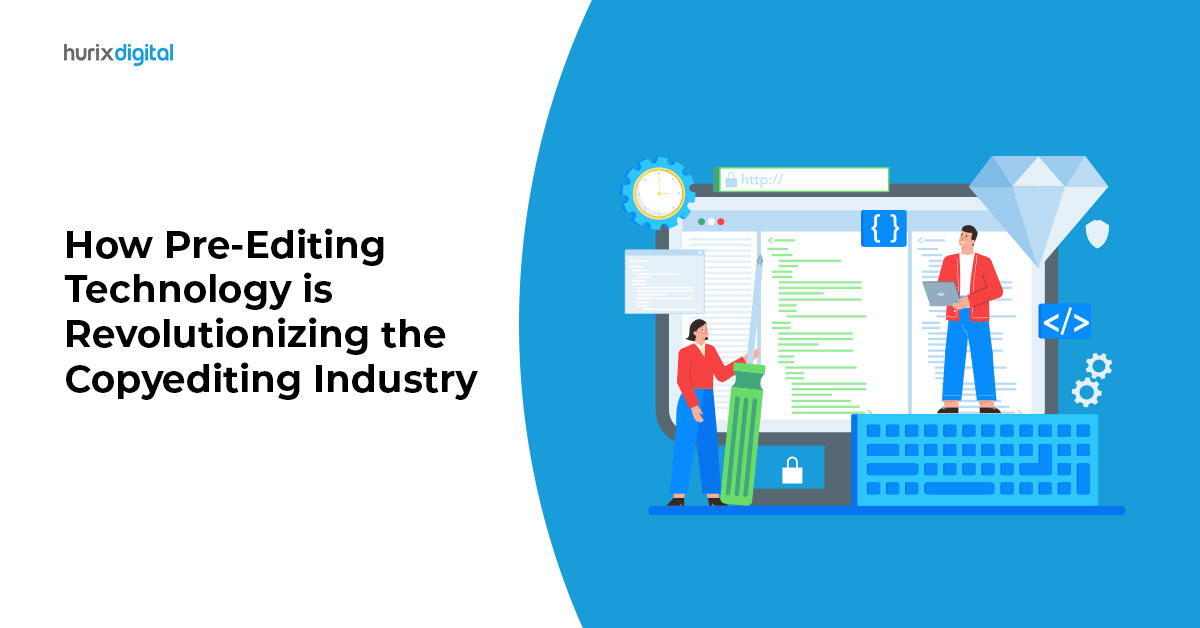
How Pre-Editing Technology is Revolutionizing the Copyediting Industry
Summary
Explore how pre-editing technology is revolutionizing the copyediting industry by streamlining the editing process, improving efficiency, and enhancing content quality.
Copyediting plays a crucial role in ensuring the quality and clarity of written content. It involves reviewing and correcting material for grammar, spelling, punctuation, and style errors. Traditionally, copyediting relied heavily on human expertise and was a time-consuming process. However, with the advent of pre-editing technology, the copyediting industry has experienced a revolution.
In this article, we explore the importance of copyediting, the role of pre-editing technology, the distinction between proofreading and copyediting, and the principles that guide the copyediting process.
Table of Contents:
- Importance of Copyediting
- Copyediting Services
- Proofreading vs Copyediting
- Principles of Copyediting
- Pre-Editing Technology’s Role in Revolutionizing Copyediting
- Conclusion
Importance of Copyediting
Copyediting is vital for several reasons. First and foremost, it ensures that content is error-free, maintaining the credibility and professionalism of the writer or organization. Copyediting also enhances clarity, making the text more readable and accessible to the intended audience. It improves grammar and language usage, resulting in clearer communication and avoiding misunderstandings. Additionally, copyediting ensures consistency in style, tone, and formatting, creating a cohesive and polished final product.
Copyediting Services
Professional copyediting services are widely available today. Copy editors, equipped with expertise and knowledge of language conventions, employ their skills to enhance the quality of written content. They meticulously review documents, correcting grammar, punctuation, spelling, and typographical errors. Copy editors also focus on style and readability, ensuring that the content flows smoothly and engages the reader effectively. Their expertise extends to ensuring adherence to specific style guides, such as the Chicago Manual of Style or the Associated Press (AP) Stylebook, depending on the publication or organization’s requirements.
Proofreading vs Copyediting
Proofreading and copyediting are often used interchangeably, but they are distinct stages of the editorial process. Proofreading primarily involves a final check for errors and inconsistencies after the copy-editing stage. Proofreaders focus on minor corrections, such as typos, missing punctuation, or formatting issues. Copyediting, on the other hand, involves a more comprehensive review that encompasses grammar, spelling, punctuation, style, and overall clarity. It addresses structural concerns, improves sentence flow, and enhances readability. Copy editors often work on the content in multiple rounds, refining it at various levels to achieve a polished and error-free result.
Also Read: 10 Advantages of Investing in Professional Copy Editing Services
Principles of Copyediting
Principles of copyediting that guide the process and ensure the highest quality of work are as follows:
- Accuracy: Copy editors prioritize accuracy in all aspects of the text, including facts, figures, and citations. They cross-check information, verify sources, and correct any inaccuracies or inconsistencies.
- Consistency: Maintaining consistency is crucial to ensure a cohesive and professional document. Copy editors adhere to established style guides or follow specific organizational guidelines to ensure consistent usage of language, grammar, formatting, and terminology throughout the text.
- Clarity: Copy editors strive to make the content clear and easily understandable for the intended audience. They eliminate jargon, simplify complex ideas, and ensure that the text flows logically and coherently.
- Tone and Voice: Copy editors consider the intended tone and voice of the content, aligning it with the writer’s or organization’s style and preferences. They ensure that the tone remains consistent and appropriate for the target audience, reflecting the desired message effectively.
- Grammar and Language Usage: Copy editors possess a strong command of grammar, syntax, and language conventions. They correct errors, improve sentence structure, and enhance the overall language used to ensure accuracy, fluency, and readability.
Pre-Editing Technology’s Role in Revolutionizing Copyediting
Pre-editing technology has revolutionized the copyediting industry by automating and streamlining many aspects of the process. It offers a range of tools and software that can detect and correct common errors before human editors even begin their work. These tools leverage advanced algorithms, artificial intelligence, and natural language processing techniques to analyze and process text. They provide suggestions for improvement, aiding in grammar and spelling correction, style and consistency checking, readability analysis, and plagiarism detection.
The integration of pre-editing technology brings several benefits to the copyediting process. It significantly improves efficiency, allowing human editors to focus on more complex editing tasks rather than spending time on routine error detection. It enhances accuracy by consistently flagging errors and offering precise suggestions for improvement. Moreover, pre-editing technology contributes to maintaining consistency, optimizing readability, and upholding ethical standards through plagiarism detection.
Also Read: Copy Editing Services: What to Expect From a Professional Copy Editor
Conclusion
Copyediting is a vital process that ensures error-free, clear, and consistent written content. While it offers numerous benefits, including improved efficiency and accuracy, it also has limitations in understanding context and specialized subject matter. Therefore, the integration of pre-editing technology by an expert like Hurix Digital should be seen as a powerful tool that complements the expertise of human copy editors, enabling them to deliver high-quality, polished content that meets the evolving demands of the digital age.
Get in touch with Hurix Digital and make your content stand out!
Meenakshi Sundaram is the Delivery manager heading the Editorial services division at Hurix. He is an Engineering graduate and has 20 years of experience in copyediting, typesetting, and full-service project management for journals. Associated with Hurix since February 2007 and played a vital role in establishing the Journal workflow. During his initial days at Hurix as an Operations head for the journal division, has put forth his meticulous effort in designing the workflow, planning, executing, and continuously monitoring the process thereby increasing the journal business multi-fold. Has a persistent vision to enhance journal publishing services and paved the way to develop a sustainable automated environment catering end-to-end services for major journal Publishers.




